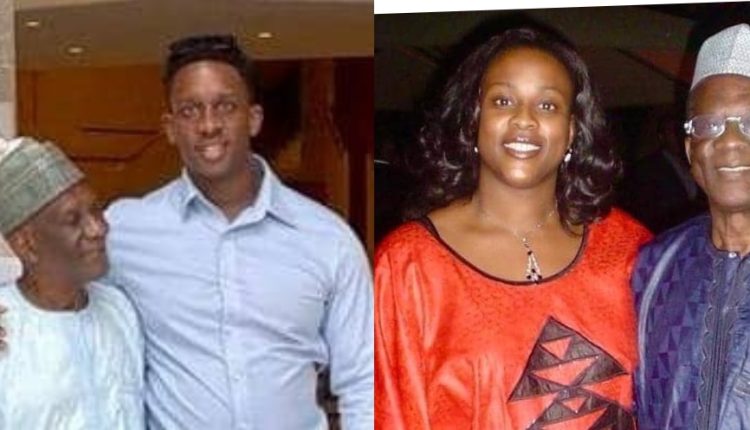Inheritance dispute over Alhaji Ibrahim’s Estate: Amina, Ahmed challenge Dr. Ibrahim Emir of Wamba, Lawal Musa Nagogo at High Court, Abuja
|
Getting your Trinity Audio player ready...
|
Constitutional and Family Background
In Suit No. CV/4235/25 — Amina Isyaku Ibrahim & Ahmed Isyaku Ibrahim v. Dr Musa Wen Ibrahim & HRH Lawal Musa Nagogo — the siblings, represented by their Counsel, international human rights lawyer Dr. Charles Adeogun-Phillips, SAN, have filed an action before the High Court of the Federal Capital Territory, Abuja, alleging discrimination on the grounds of religion and gender in the administration of their late father Alhaji Isyaku Ibrahim’s estate.
The late Alhaji Isyaku Ibrahim, a distinguished businessman, philanthropist, and political elder, was a practising Muslim who married Mrs Charlotte Jamila Ibrahim, a practising Christian, in Monrovia, Liberia, under statutory law in 1974. Their marriage reflected unity and mutual respect across faiths.
Their children, Amina and Ahmed, were raised in an inter-faith household that embraced both Christian and Muslim traditions as part of one inclusive family.
Following their father’s passing in August 2025, the Applicants allege that they were excluded from inheritance discussions by the respondents on account of their Christian faith, and that, in Amina’s case, her gender was cited as an additional ground for exclusion.
Their claim invokes Sections 38 and 42 of the Constitution of the Federal Republic of Nigeria (1999, as amended), which guarantee freedom of religion and protection from discrimination, as well as Articles 2 and 3 of the African Charter on Human and Peoples’ Rights (Cap A9, Laws of the Federation of Nigeria 2004).
They further allege that approximately ₦800 million realised from the sale of a 5.44-hectare factory property was misappropriated without lawful probate authority, purportedly under the guise of Islamic personal law.
The petition urges the Court to declare that exclusion from inheritance on religious grounds contravenes these constitutional and charter-based guarantees — positioning the case as a significant test of Nigeria’s commitment to equality and freedom of religion within family and customary contexts.
Legal and National Implications
The case raises significant questions about how Nigeria’s plural legal system reconciles statutory and personal law, especially within mixed-faith families. It brings into sharp focus the constitutional and procedural boundaries governing the administration of estates where heirs belong to different faiths or where customary influences attempt to override statutory safeguards.
At the heart of the dispute is the fact that the respondents — neither of whom are next of kin nor members of the family — began administering the estate of Alhaji Isyaku Ibrahim without lawful authority; no Letters of Administration had been granted, and no probate process had been concluded.
This unilateral assumption of control over the estate, under the guise of religious injunctions, raises a fundamental legal question: can an estate be lawfully administered, or its assets disposed of, without formal authority from the court?
The outcome of this case will therefore do more than address individual grievances; it will help clarify how far religious or customary practices may go before they infringe on constitutional and statutory law. It also underscores the urgent need for judicial guidance to prevent future instances where estates are managed outside the scope of recognised legal process. In this broader context, the proceedings stand as a reflection of Nigeria’s ongoing effort to balance faith, custom, and the rule of law in protecting every citizen’s equal rights.



Comments are closed, but trackbacks and pingbacks are open.